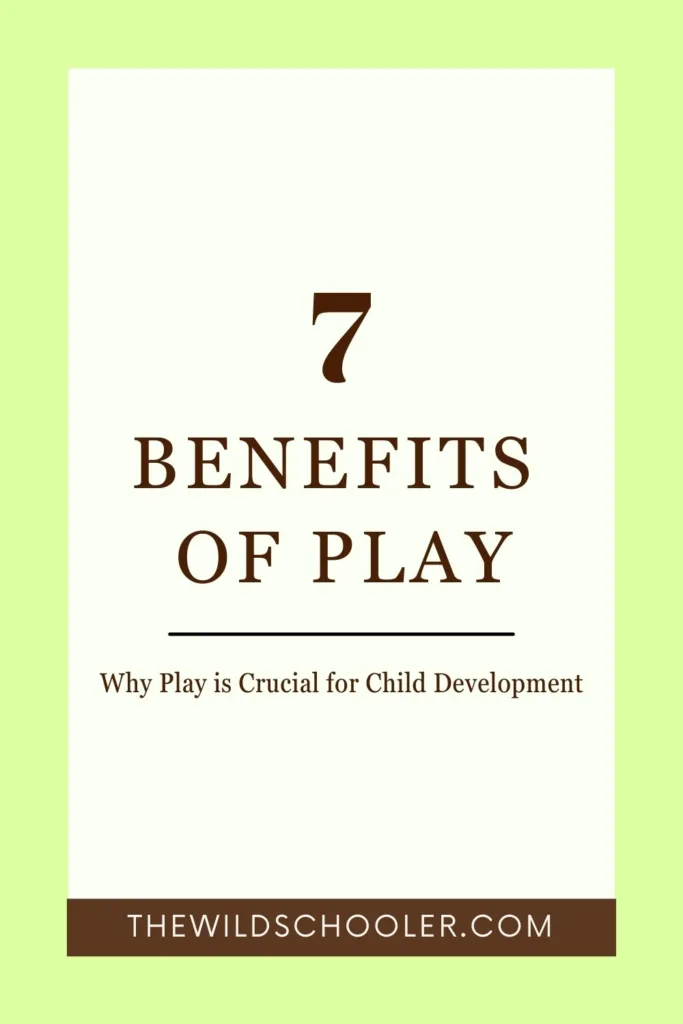
In today’s fast-paced, technology-driven world, the benefits of play for children can sometimes be underestimated. Academic achievement often takes center stage, and while education is undoubtedly vital, it’s crucial not to overlook the significance of play in child development. Countless research studies support the idea that there are numerous benefits of play for children, both academically and socially. In this blog post, we’ll explore the seven research-backed benefits of play and why it’s even more important at certain ages than academic learning.
1. Cognitive Development:
Play serves as a natural learning tool, allowing children to develop cognitive skills. It stimulates creativity, problem-solving, and critical thinking. According to a study by the American Academy of Pediatrics, imaginative and pretend play helps children gain important cognitive skills, enhancing their abilities to adapt to new situations and think outside the box.
2. Social Skills:
Play is a social activity that fosters communication, cooperation, and empathy. Children learn to interact with their peers, share, and take turns, which are essential life skills. A report from the American Academy of Pediatrics states that children who engage in pretend play tend to have stronger social and emotional development.
3. Emotional Regulation:
Play allows children to express their emotions, providing an outlet for their feelings. This helps them learn to manage and understand their emotions, ultimately leading to better emotional regulation. A study published in the Journal of Pediatrics found that unstructured playtime significantly contributes to emotional intelligence.
4. Physical Health:
Physical play, such as running, jumping, and climbing, promotes a healthy lifestyle and physical fitness. It’s an effective way to combat the rising issue of childhood obesity. The American Heart Association suggests that active play can reduce the risk of obesity and related health problems in children.
5. Language Development:
Play is a fertile ground for language acquisition. As children interact with peers or adults in play, they enhance their vocabulary and language skills. Research conducted by the American Academy of Pediatrics reveals that play-based learning is a powerful tool for language development.
6. Creativity and Imagination:
Play encourages children to use their imagination, which is essential for creativity. Creativity plays a pivotal role in problem-solving, and it’s a skill highly valued in various professions. A study published in the journal “Early Education and Development” underlines the connection between imaginative play and creativity development in children.
7. Reduced Stress:
Play serves as a stress reliever for children. In our fast-paced world, kids often face stress and anxiety. According to research from the American Psychological Association, engaging in play helps children reduce stress levels, leading to better mental health.
The Importance of Play in Early Childhood Education:
While academics are important, research shows that the benefits of play for children should not be overlooked, especially in early childhood education. The American Academy of Pediatrics recommends that, for children under the age of six, play is an essential part of their development. It is during this period that children experience rapid cognitive, emotional, and social development, and play provides a nurturing environment for these changes.
Incorporating play-based learning in early education can offer a more holistic approach to child development. It’s not a replacement for academics but rather a complementary tool that prepares children for future academic success. Statistics show that children exposed to play-based learning are more likely to have better language skills, improved reading readiness, and enhanced social and emotional skills when they enter formal schooling.
In a world where academic success is highly emphasized, it’s crucial to remember that the benefits of play for children is not just a pastime; it’s an integral part of child development. Countless research studies emphasize the importance of play in nurturing cognitive, emotional, social, and physical growth. Play should be viewed as a means to enhance a child’s overall development, and parents and educators should ensure that there’s a healthy balance between academic learning and play-based learning, especially during the crucial early childhood years.
Incorporating play into early education programs can pave the way for brighter futures, where children have a strong foundation in social and emotional skills, cognitive development, and creativity. By acknowledging and promoting the seven benefits of play, we can ensure that children grow into well-rounded, emotionally intelligent, and academically prepared individuals.












